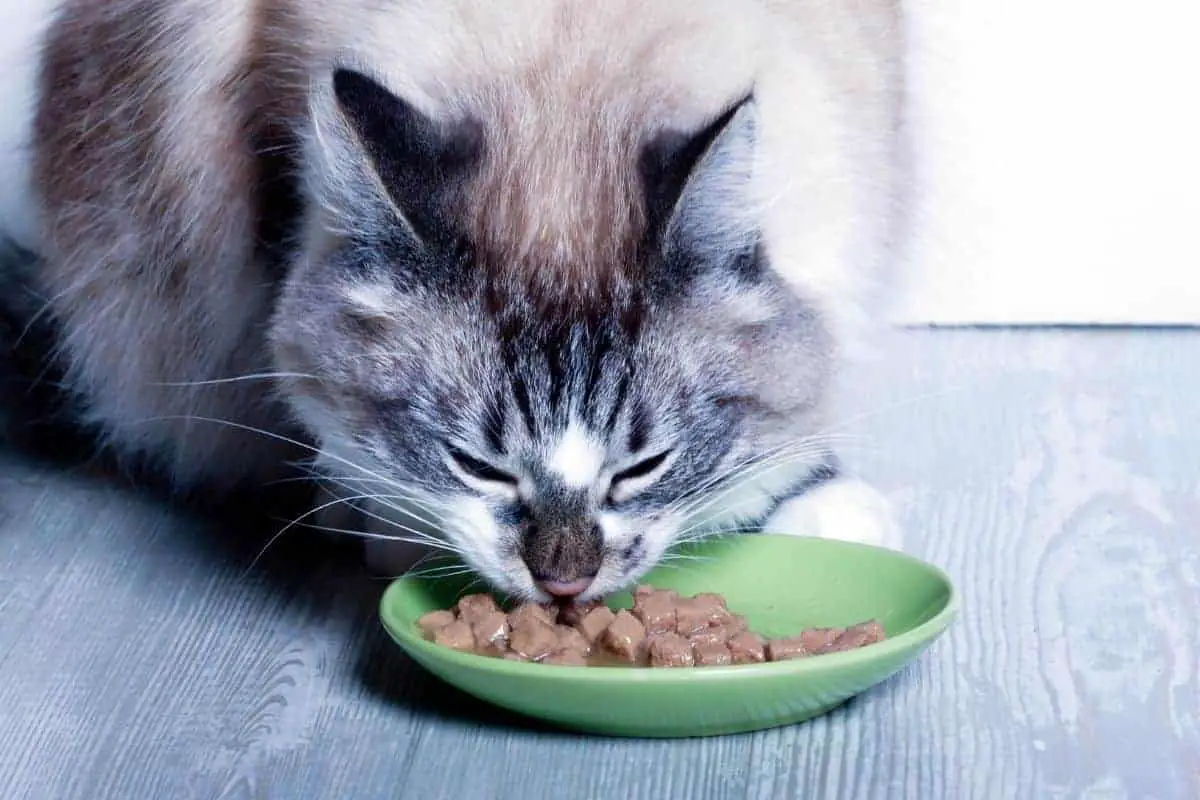Cats can be a little overenthusiastic when it comes to food. We all know that they might scream like they haven’t eaten in days when mealtimes come around. It’s only natural to worry about your kitty overeating—and think about the worst happening.
Your cat will not die if they overeat—but they might get nauseous or develop other health issues due to overeating. It is these accompanying issues that could be fatal to your pet. Overeating could also be a sign of an underlying health problem that you should address as quickly as possible.
It’s essential to pay attention to your pet and notice when there are warning signs for other conditions. You should know when to take the bowl away or start implementing an activity regimen for your cat if they’re starting to pick up too much weight.
What Happens if Your Cat Eats Too Much?
Just like humans, cats can overeat. The results are pretty much the same: cats can get nauseous and become obese if they overeat regularly. Obesity can influence their overall health, contributing to liver or heart diseases, urinary tract diseases, and diabetes. Due to all these complications, overweight cats often have much shorter lifespans.
Overweight cats might find it challenging to move around, which can lead to a worsening condition. Common health problems found in overweight cats include arthritis and joint pain, making it very difficult for felines to move around. Cats suffering from these conditions often neglect regular grooming.
Cats who don’t groom regularly develop matted or clumped fur (especially in long-haired cats) and dandruff. Matted fur can be uncomfortable and itchy for your feline friend and even more painful to get rid of. Clumped fur makes it infinitely harder to spot common problems such as fleas or ticks, which can become a severe risk if left for too long.
Can Cats Get Sick from Eating Too Much?
Besides the long-term complications of overeating, cats might get nauseous if they eat too much or too quickly. They will probably throw up, which is an awful experience for both owner and pet alike. Be mindful to keep an eye on your cat if this happens—cats may throw up for multiple reasons, and if there are other factors involved, it might be time for a visit to the vet.
Why do Cats Overeat?
Cats can overeat for a multitude of reasons. Most pets eat until they are full, but some eat whenever food is available. They could overeat if you keep their bowls constantly full or if you make a habit of feeding them at varying times.
However, sometimes overeating can be a sign of an underlying condition. Knowing when to take more serious measures might save you a lot of heartache and trouble further along the line.
- They Have Intestinal Parasites
If your cat is overeating and just not gaining any weight, it might suffer from an intestinal parasite. Cats can get these from anywhere—if they have fleas or even from another pet. In this case, you’ll have to visit the vet to determine what kind of parasite it is. You’ll probably receive medication to treat your pet.
Be sure to treat all your pets in this case since these are usually transferrable from one to the other. Ensuring your pets are all treated can avoid reinfestation and more trips to the vet.
- Your Cat Might be Stress Eating.
Make sure nothing else is bothering your cat. Some cats might have had past trauma—especially if your cat is a rescue from the streets. They might be overeating because they’re afraid they won’t be getting food again soon. Perhaps they’re eating too fast because they’re worried another pet will steal their food.
If you think this might be the problem, keep regular feeding times to keep them from becoming too anxious. Feed your pets separately if you have more than one to keep them from stealing the others’ food.
- An Untreated Disease Might Increase Appetite
When your cat has a sudden increase in appetite or has any other new and worrying symptoms. In cases like these, it might be suffering from something more serious. Underlying conditions could be any number of things, such as cancer, hyperthyroidism, or even diabetes. A vet will have to run tests to determine whether these might be influencing your cat’s appetite.
Usually, these illnesses will require treatments or medication, and you might see their appetite return to normal. Your pet might require a change in diet to accompany their health needs.
- A New Medication Might Be Influencing Their Habits
Sometimes a new medication can mess with your cat’s internal clock—it can make them lethargic or increase their appetite. Whenever your cat goes on a new medication or treatment, make sure to ask the vet about side effects. Know when the side-effects can be detrimental, and try to keep track as soon as you notice any.
When side effects become too severe, don’t hesitate to give your vet a call. Pets can have allergies, and we can’t always know when the side effects are just the symptoms of an allergic reaction. It’s better to be safe than to deal with a more significant issue later on.
- Some Cats Just Really Like Food
Yes, just like the famous cartoon glutton Garfield, your cat might be in the habit of stealing food from the table or breaking into the cat food cupboard just to get to their snacks. Sometimes the answer is that simple, and there are no serious health issues. Cats can love food and treats just as much as you do.
When no other conditions seem to be causing your cat’s increased appetite, they might just really like eating. In that case, you should avoid giving in to the pleading, especially if it’s right after they’ve had the appropriate amount of food at their feeding time.
What Should You Do If Your Cat Eats Too Much?
Cats should have a balanced diet. It would be best to feed them twice a day and balance their meals between wet and dry food. Depending on their size, age, and daily activity levels, you might have to adjust their feeding schedule and amount. Cat food should have the daily recommended amount listed on the back of the bags.
The best way to keep track of your cat’s eating habits is to keep a regular feeding schedule and keep it. Choose a specific time and make sure you stick to it. Make sure it fits your schedule, and don’t change it too much on holidays or weekends. Cats have an internal clock, and changing the program too much could confuse them.
If you notice your cat is picking up weight, make sure they’re getting enough exercise. It could include making playtime a regular habit to keep cats active. Ensure that there is enough space for your cat to move around and things for them to do while you’re not there. That could mean a cat tree to climb or some toys they can play with on their own.
Cats sometimes eat too fast, which could make them sick. If they tend to do this on a particular type of food, you might have to consider a switch. Dry food expands in your pet’s stomach, so wet food might be the easy option to prevent a nauseous feline. You could also try and feed them smaller amounts at a time or spread the food out on a flat surface to force them to slow down.
If your cat is a bit of a glutton, consider getting a feeder ball or a slow feeding bowl. A feeder ball can force your cat into being active since they have to play with the toy to get the food. Feeding bowls obstruct their food, making them slow down and eat more carefully.
Health and Happiness Go Hand in Hand
We all worry about our pets, and it’s essential to know when they need professional help. Cats can be a bit overdramatic sometimes, but we all want them to be happy and healthy. While fat cats might be an onscreen sensation, their eating habits should never come in the way of their health.




